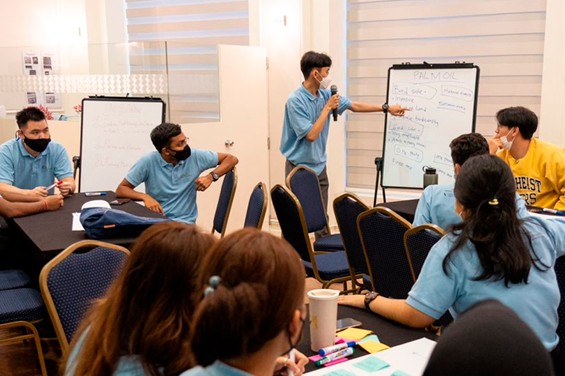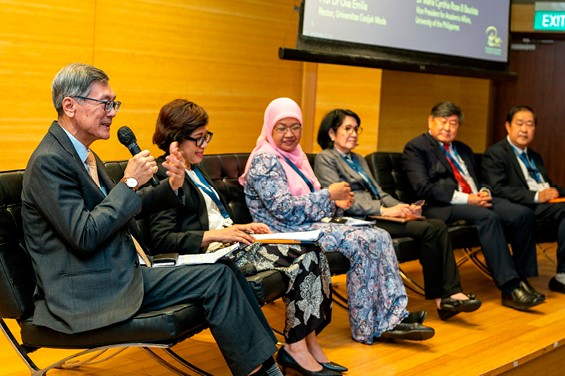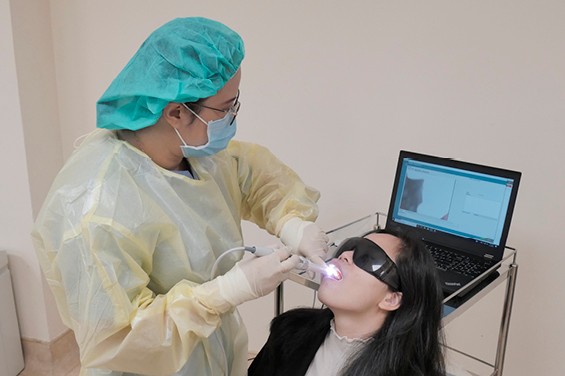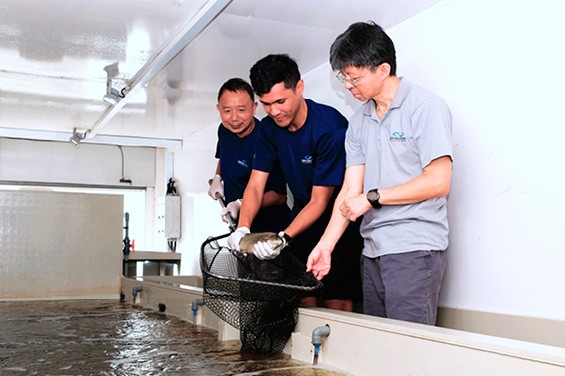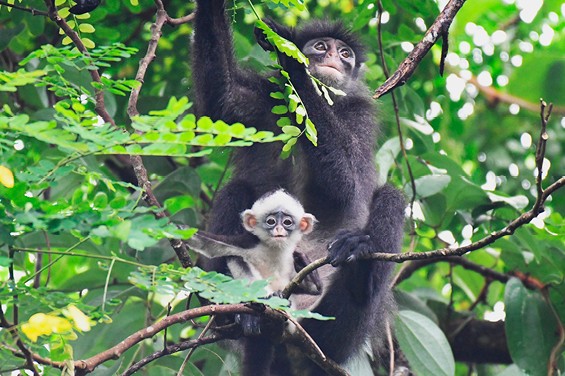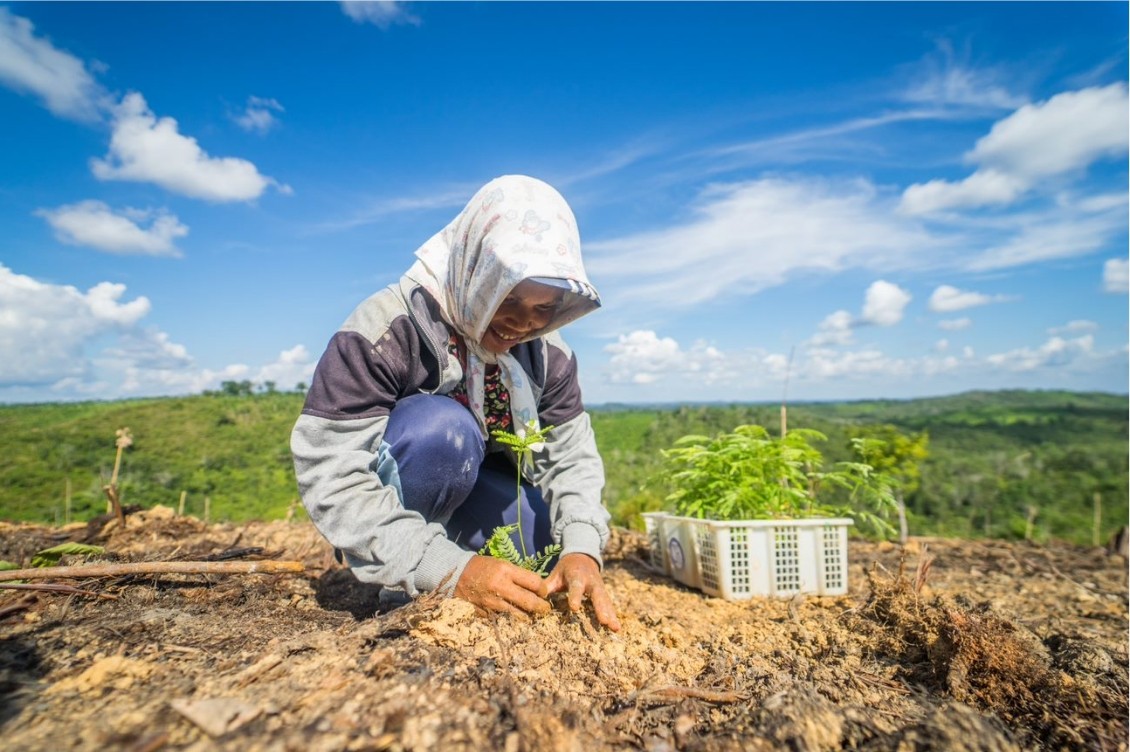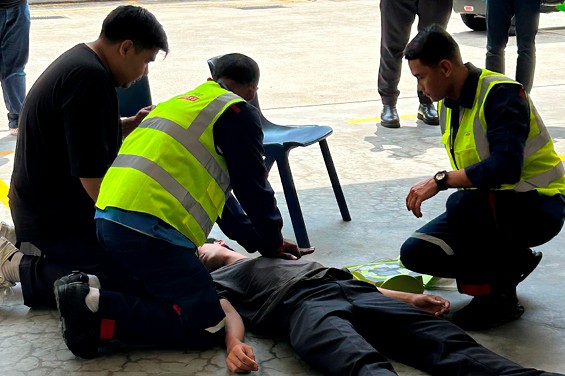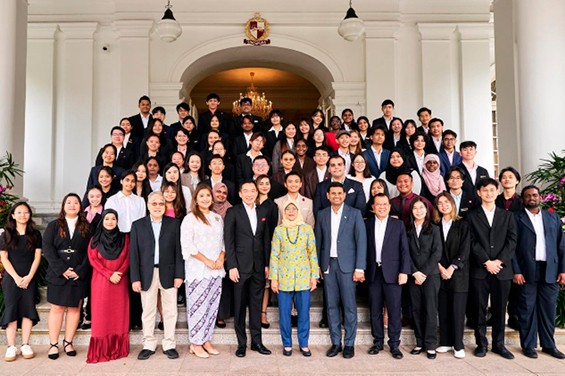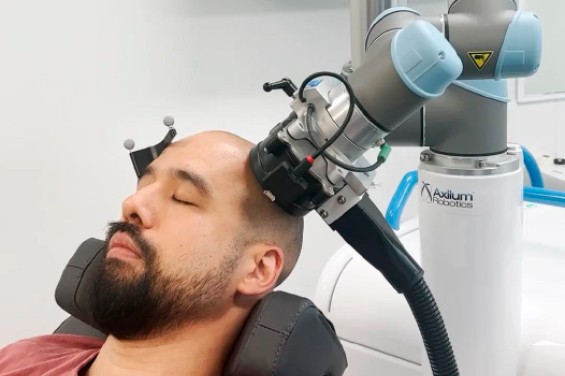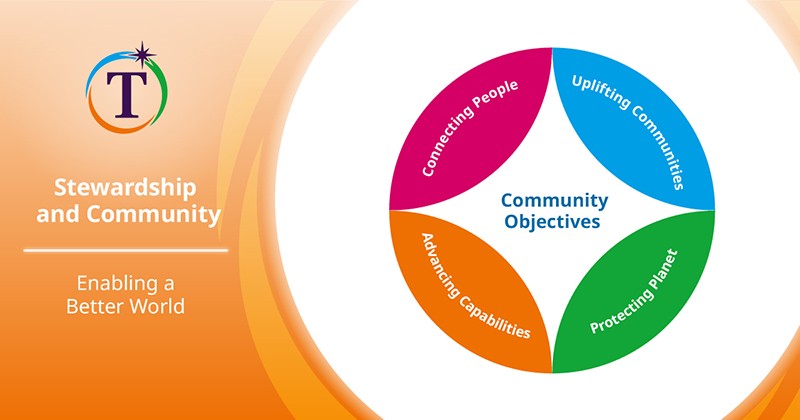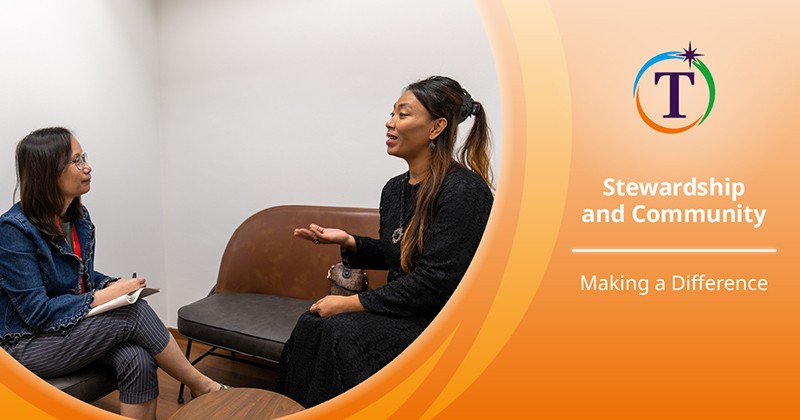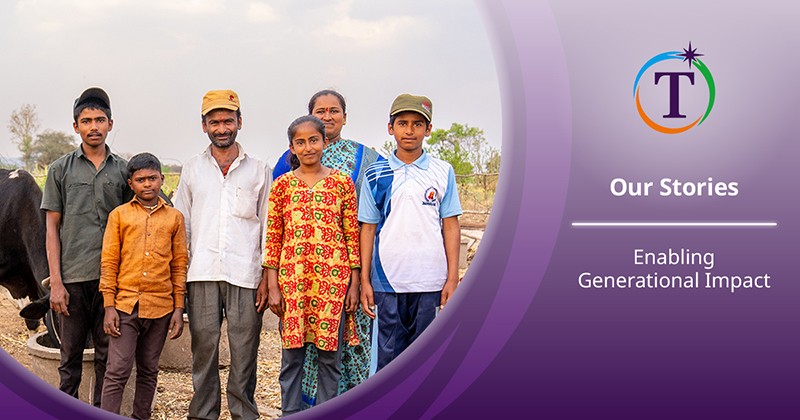Touching Lives
Temasek’s non-profit entities identify community needs and spearhead programmes to connect people, uplift communities, protect the planet, and advance capabilities, in Singapore and beyond.
Connecting People
Uplifting Communities
Protecting the Planet
Connecting People
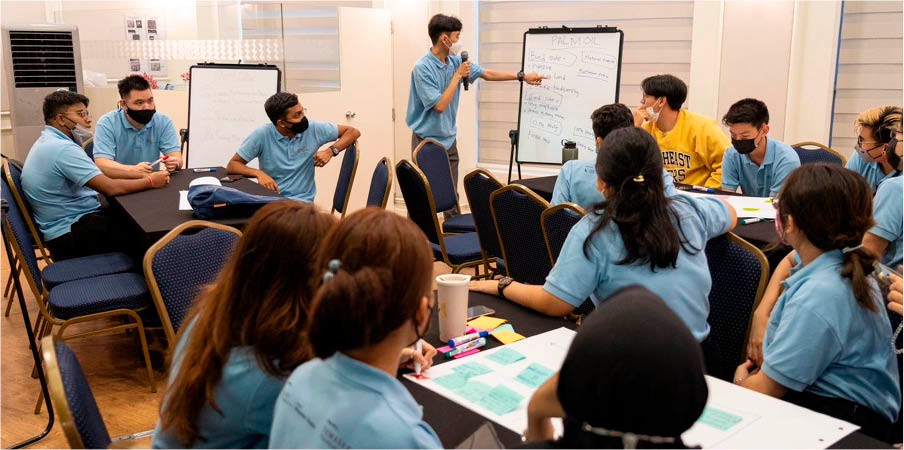
Participants of the Youth Ecosperity Dialogue discuss how youths can accelerate change and move from commitment to action
Youth Ecosperity Dialogue (YED) 2022
The YED, held in partnership with Ecosperity Week, is an annual platform for student leaders to discuss pressing challenges in sustainability. Last year’s YED was organised by Singapore Management University’s College of Integrative Studies. It saw the participation of 78 youths aged 18 to 25, from 36 institutes of higher learning. Through industry engagements, workshops, and conversations with global thought and business leaders, participants gained new insights on tackling sustainability issues, and explored ways to accelerate real impact through sustainable business practices.
Connecting People
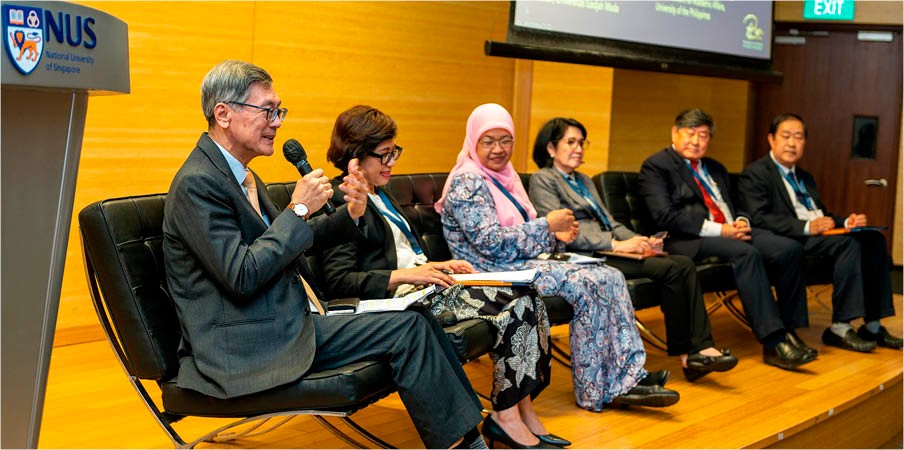
NUS President Professor Tan Eng Chye (leftmost) moderating a plenary session with key ASEAN university leaders on the role of regional cooperation in the transformation of higher education in ASEAN
10-year Anniversary of the Programme for Leadership in University Management (PLUM)
PLUM is a collaboration by Temasek Foundation and the National University of Singapore to create a platform for university leaders to bolster ties; exchange insights and best practices; and advance ideas on the governance and management of universities in Southeast Asia, as well as the development of the region as a whole. Since it began in 2012, about 300 participants from over 30 universities have attended the programme.
To mark its 10-year anniversary, a three-day summit was held in November 2022, to discuss transformation in higher education, innovation and entrepreneurship, and sustainability efforts in the ASEAN region. This saw the participation of 50 delegates from 24 universities across Southeast Asia, and they were joined by the President of the Republic of Singapore Halimah Yacob and Singapore’s Minister for Education Chan Chun Sing.
Uplifting Communities
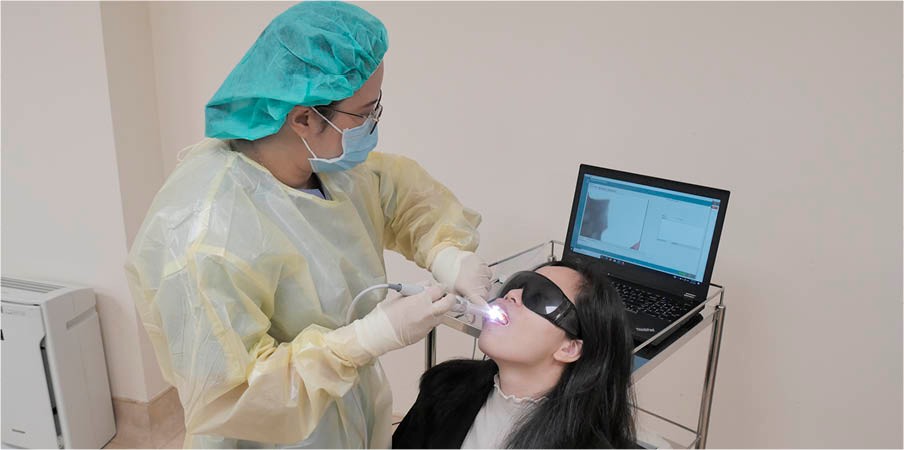
A healthcare worker demonstrating the use of intraoral cameras as part of the dental screening process
Tele-Dentistry Oral Care for Seniors (T-DOCS)
The National Dental Centre Singapore (NDCS) and Temasek Foundation are jointly piloting the T-DOCS programme, to improve access to preventive oral care for vulnerable seniors who are enrolled in home care programmes or staying in nursing homes. Free dental screenings are conducted once every six months, with healthcare workers using intraoral cameras to capture images for remote assessment by NDCS’ dentists. Treatment plans would then be conveyed to care staff, the seniors, and their families for follow up. The T-DOCS team is concurrently developing an Artificial Intelligence software to analyse captured images, which reduces the time taken to assess them, and alerts dentists sooner to areas of concern. So far, about 200 seniors from St Andrew’s Community Hospital and Vanguard Healthcare have benefitted from T-DOCS.
Uplifting Communities
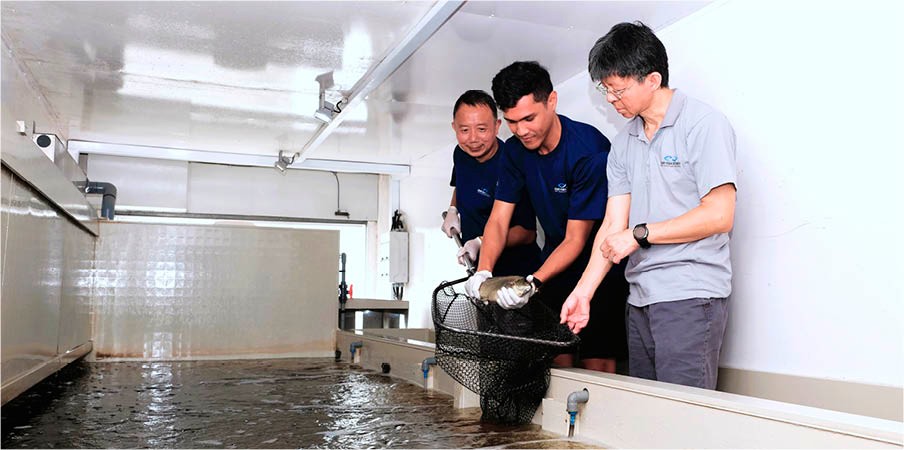
Affordable fresh fish bred with Aqualita’s modular and scalable farming innovations
Aqualita
“Real fresh fish. Affordable, anywhere, anytime” — this is the motto of Aqualita, a Singapore-based aquaculture start-up that is a beneficiary of the Liveability & Sustainability Innovation grant from Temasek Foundation in 2021. Aqualita aims to contribute not only to the long term security of food supply, but also to the transformation of the aquaculture industry.
Aqualita has developed innovative fish farming solutions in the form of modular, scalable, and stackable mini-farms. By combining biology and engineering expertise, as well as tapping on fish nutrition, water management, and husbandry capabilities, Aqualita is able to deliver more sustainable and higher fish yields in a clean and safe environment. Aqualita’s solutions support farmers, communities, and the environment, and the company is committed to training and equipping the next generation of aquaculture enthusiasts and specialists alike.
Protecting the Planet
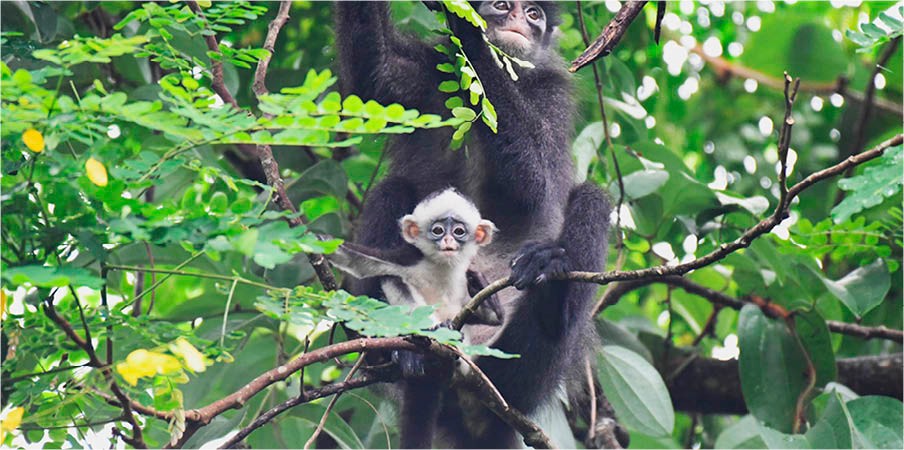
Raffles’ Banded Langur mother and child
Protecting Singapore’s Rarest Primate
The Raffles’ Banded Langur (RBL) is one of only three native primates in Singapore, and was considered to be on the verge of extinction in the 1990s. Today, conservation work for this species is actively managed and funded by Mandai Nature. Efforts to protect this Critically Endangered primate began in 2016 and was spearheaded by the now defunct Wildlife Reserves Singapore Conservation Fund. One of the key objectives was to re-establish canopy connectivity for the safe movement of these arboreal monkeys. Two rope bridges between fragmented forests in Singapore were installed in 2019 to facilitate the safe crossing of the RBLs and other wildlife. Surveillance footage showed at least 293 successful crossings by the RBLs between April 2020 and August 2021. Today, there are an estimated 70 RBLs in Singapore.
Protecting the Planet
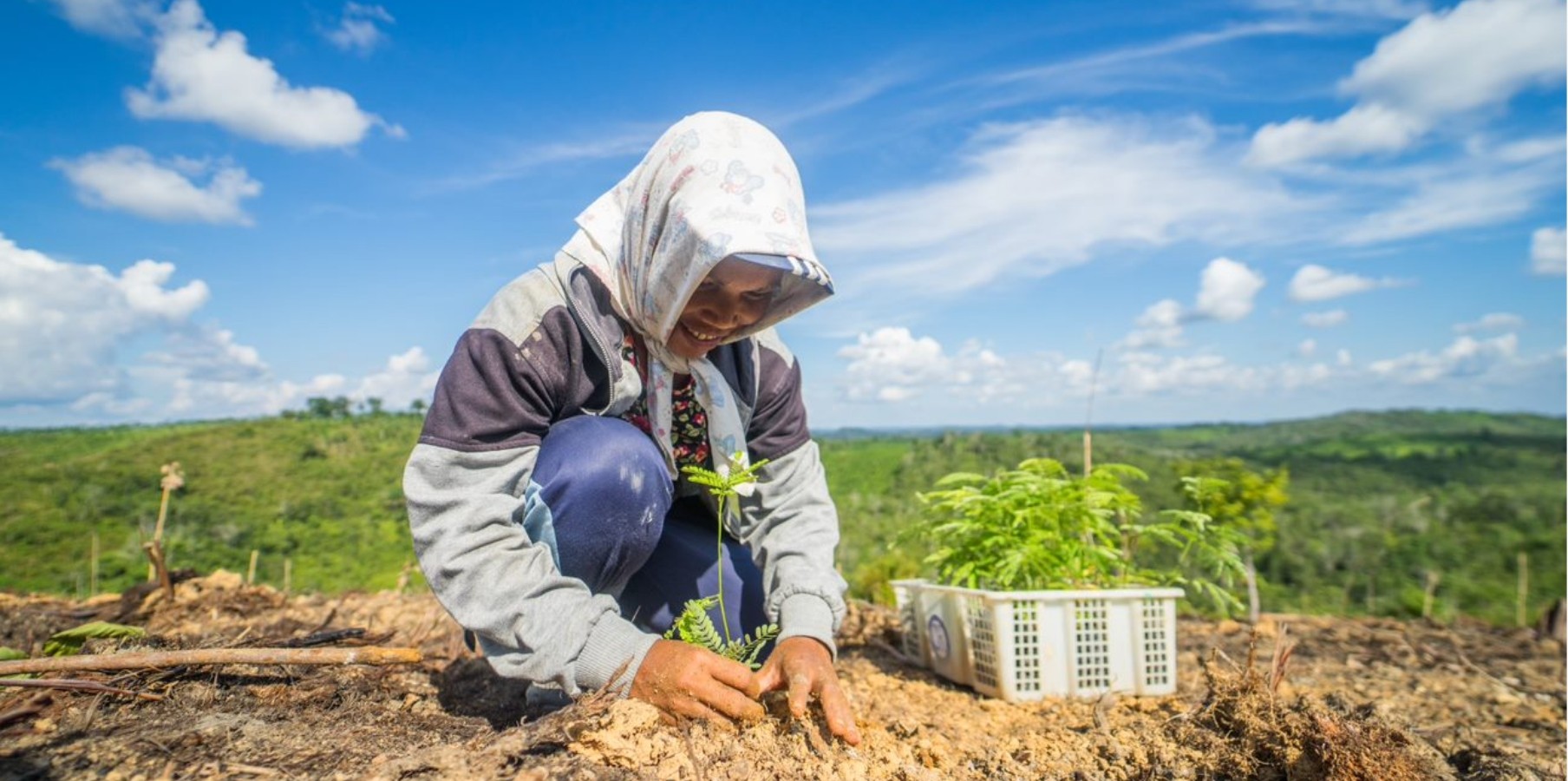
Fairventures Social Forestry works with local community members in Kalimantan, Indonesia to plant timber seedlings and cash crops to restore degraded land
The Liveability Challenge 2022 Winner — Fairventures Social Forestry
Fairventures Social Forestry, a Germany-based start-up and winner of Temasek Foundation’s The Liveability Challenge (TLC) 2022, aims to sustainably manage forests and improve livelihoods in Indonesia using a scalable social forestry model that incorporates blended finance. Fairventures restores degraded land impacted by slash-and-burn agriculture, illegal logging, illegal mining, or large-scale monocultures, and creates sustainable income opportunities from timber and cash crops for local community members. The prize money of TLC 2022 will be used by Fairventures to scale its business model through the development of new community-based agroforestry and conservation projects in Sumatra and Java.
Advancing Capabilities
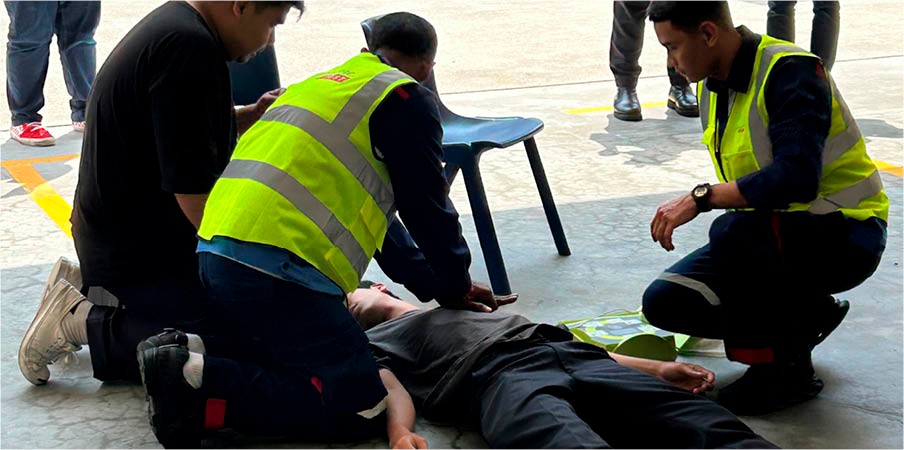
SingPost drivers demonstrating cardiopulmonary resuscitation assisted by the AED and first aid kits provided by Temasek Foundation
Automated External Defibrillator (AED)-on-Wheels Programme
In a collaboration between Temasek Foundation, SMRT Taxis, and Singapore Heart Foundation, the AED-on-Wheels programme was first piloted in 2015 to equip taxi drivers with an AED, and to train them to be community first responders. It has progressively expanded to more drivers, including SingPost couriers in 2023. By increasing the availability of roving AEDs within the community, the programme improves response time and the victim’s chances of survival. As of February 2023, 152 cases of suspected cardiac arrest and minor fires were attended to by drivers under the programme.
Advancing Capabilities
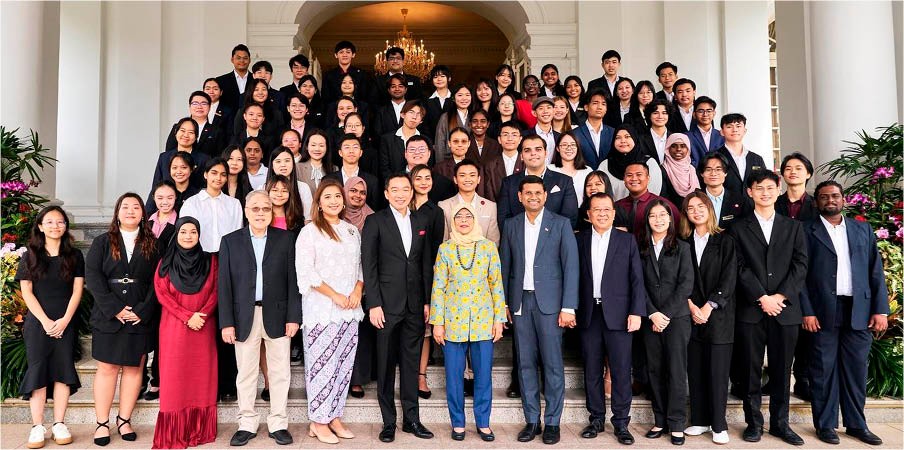
Youth leaders with the President of the Republic of Singapore Halimah Yacob after being appointed as the 2023 cohort of Harmony Champions
Harmony Champions
In February 2023, close to 80 Singaporean youths from local institutes of higher learning were appointed as Harmony Champions by the President of the Republic of Singapore Halimah Yacob, under a new programme by Temasek Foundation and Roses of Peace. The programme nurtures youth leaders to become advocates of interracial and interreligious harmony by facilitating dialogues on racial and religious cohesion, as well as championing peace-building initiatives.
Advancing Capabilities
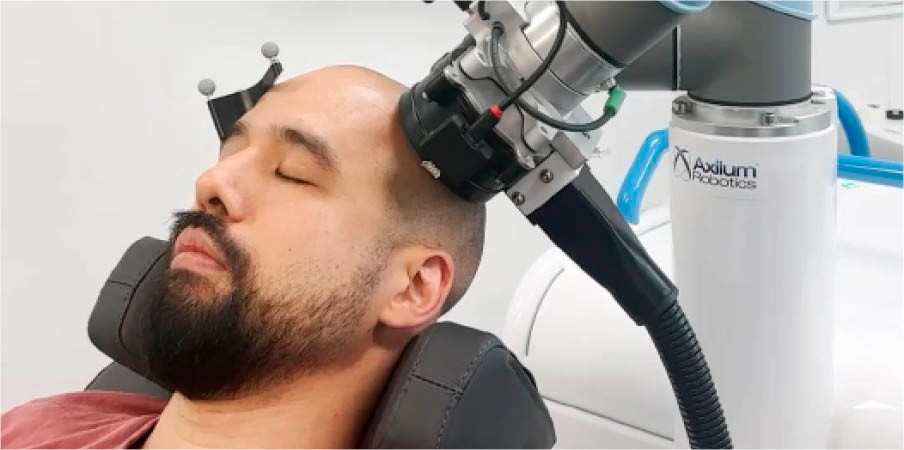
A demonstration of personalised and non-invasive brain stimulation to treat depression
Personalised Transcranial Magnetic Stimulation (TMS) Treatment for Depression
Temasek Foundation is supporting a team led by Dr Tor Phern Chern, Head of Neurostimulation Service at the Institute of Mental Health, and Thomas Yeo, Associate Professor at the Yong Loo Lin School of Medicine and College of Design & Engineering at the National University of Singapore, who are working on an innovative treatment of personalised and non-invasive brain stimulation for patients with Major Depressive Disorder. Compared to the conventional TMS which targets the same location across patients, their solution uses functional Magnetic Resonance Imaging and algorithms to determine and map out the precise relevant brain networks and locations in each patient’s brain, so as to personalise the TMS to be used on them.
This solution improves patient outcomes by increasing the percentage of patients who respond well to treatment from 40% to 80%. It can also shorten the time spent in active treatment and is more cost-effective compared to standard care options.
